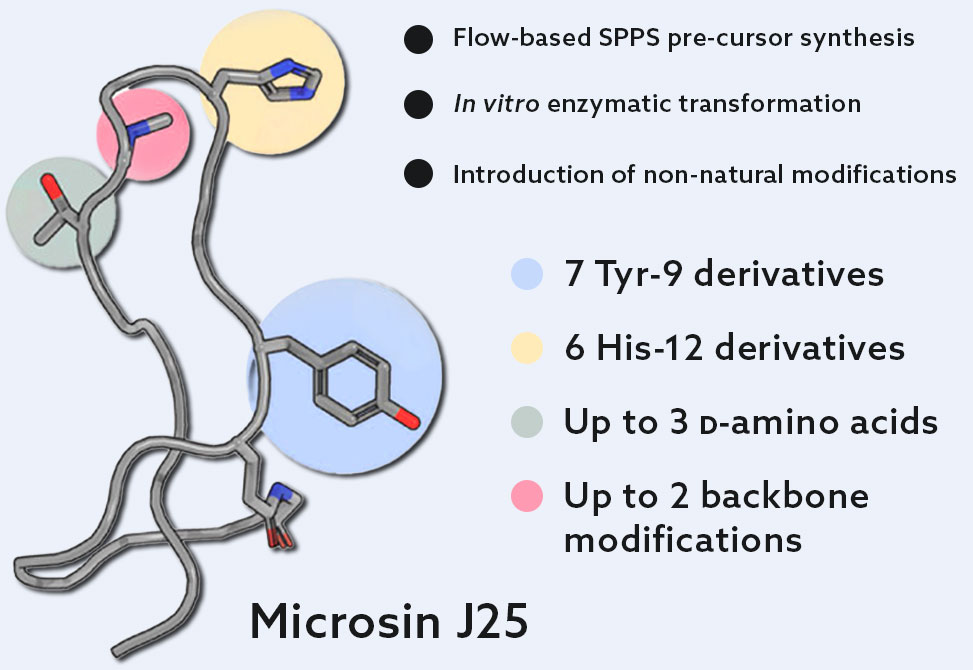Lasso Peptides
Reflecting work in the The Hartrampf Lab
Many peptidic natural products, such as lasso peptides, cyclic peptides, and cyclotides, are conformationally constrained and show biological stability, making them attractive scaffolds for drug development. Although many peptides can be synthesized and modified through chemical methods, knot-like lasso peptides such as microcin J25, MccJ25, and their analogues remain elusive.

As the chemical space of MccJ25 analogues accessible through purely biological methods is also limited, researchers in the Hartrampf Lab proposed a hybrid approach: flow-based chemical synthesis of non-natural precursor peptides, followed by in vitro transformation with recombinant maturation enzymes, to yield a more diverse array of lasso peptides.

Published in JACS group members describe how they established the rapid, flow-based synthesis of chemically modified MccJ25 precursor peptides, 57 amino acids. Heterologous expression of enzymes McjB and McjC was extensively optimized to improve yields and facilitate the synthesis of multiple analogues of MccJ25, including the incorporation of non-canonical tyrosine and histidine derivatives into the lasso scaffold.
Finally, using their chemoenzymatic strategy, group members produced a biologically active analogue containing three d-amino acids in the loop region and incorporated backbone N-methylations. The method presented in this paper provides rapid access to chemically modified lasso peptides that could be used to investigate structure–activity relationships, epitope grafting, and the improvement of therapeutic properties.


